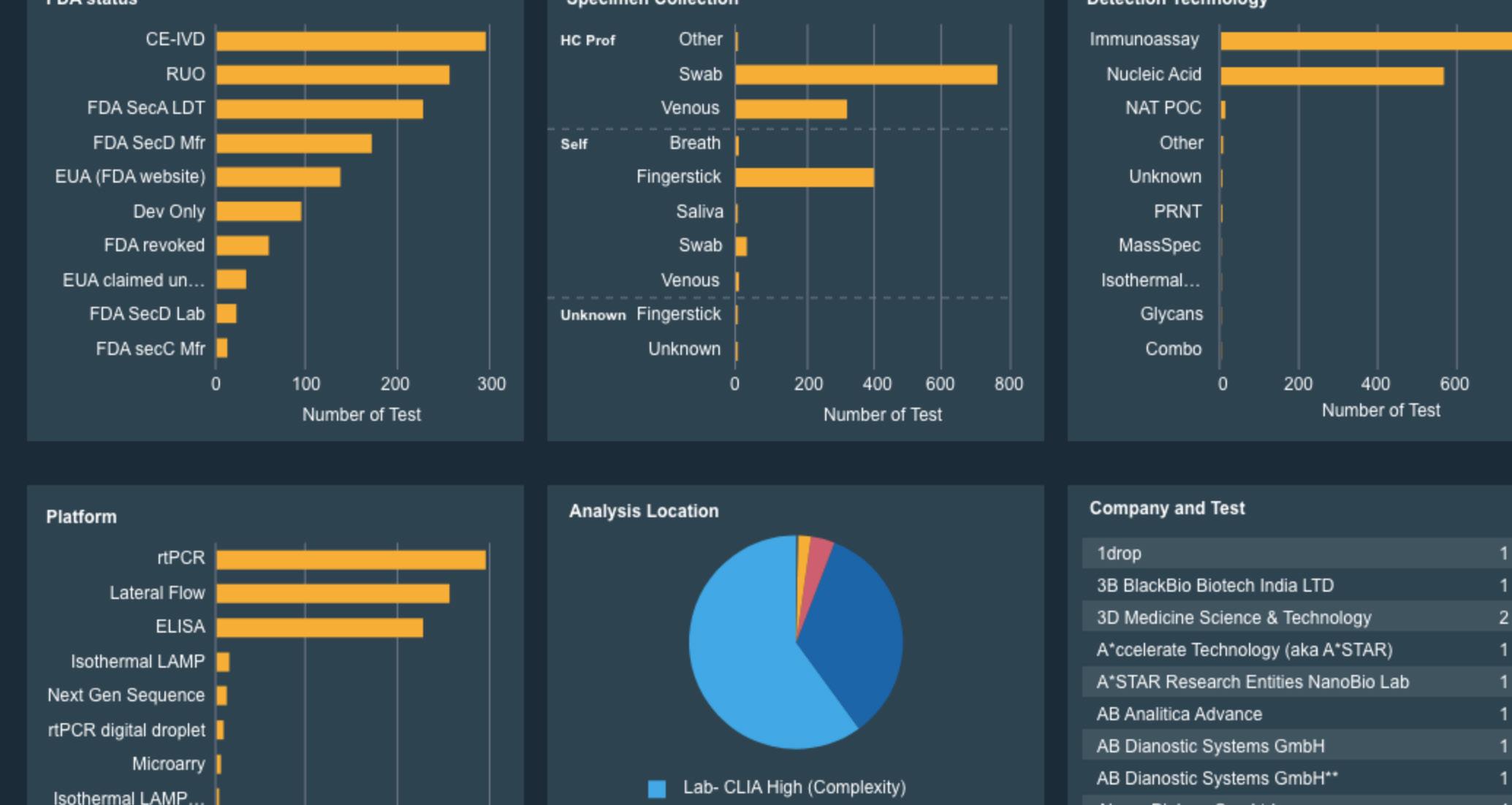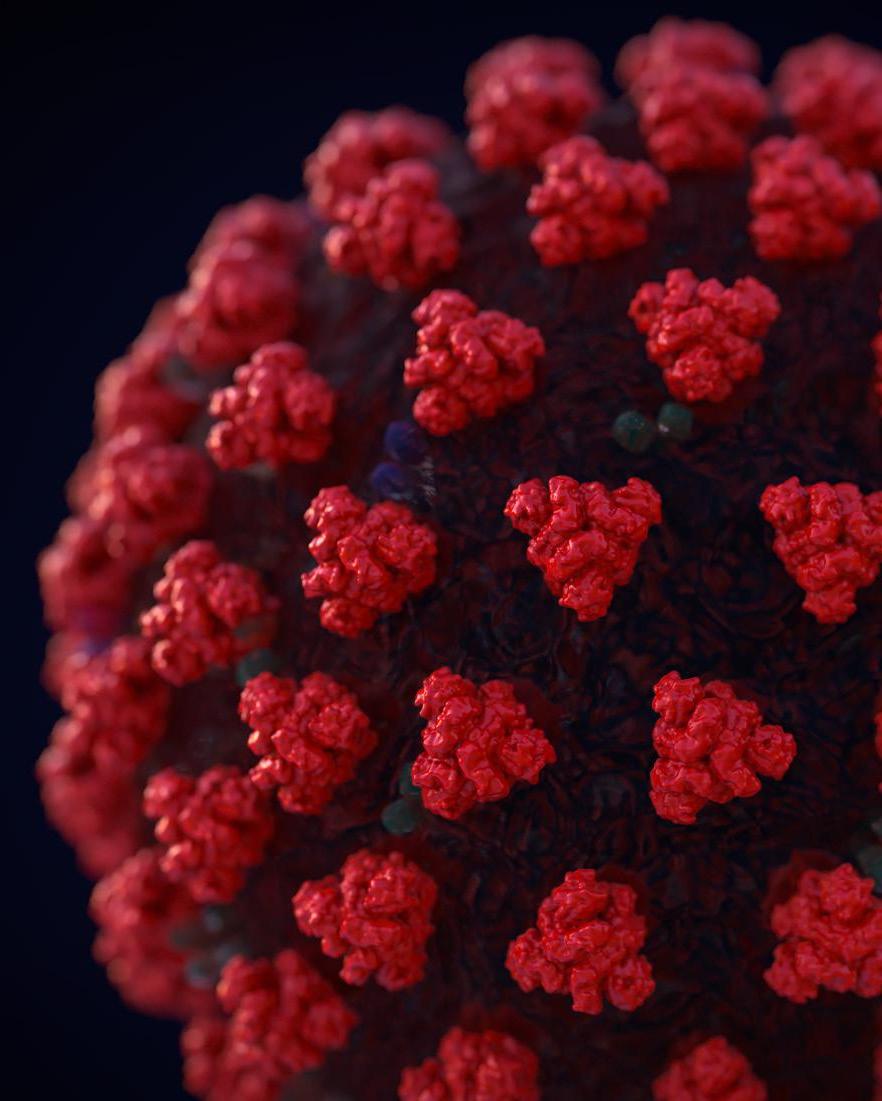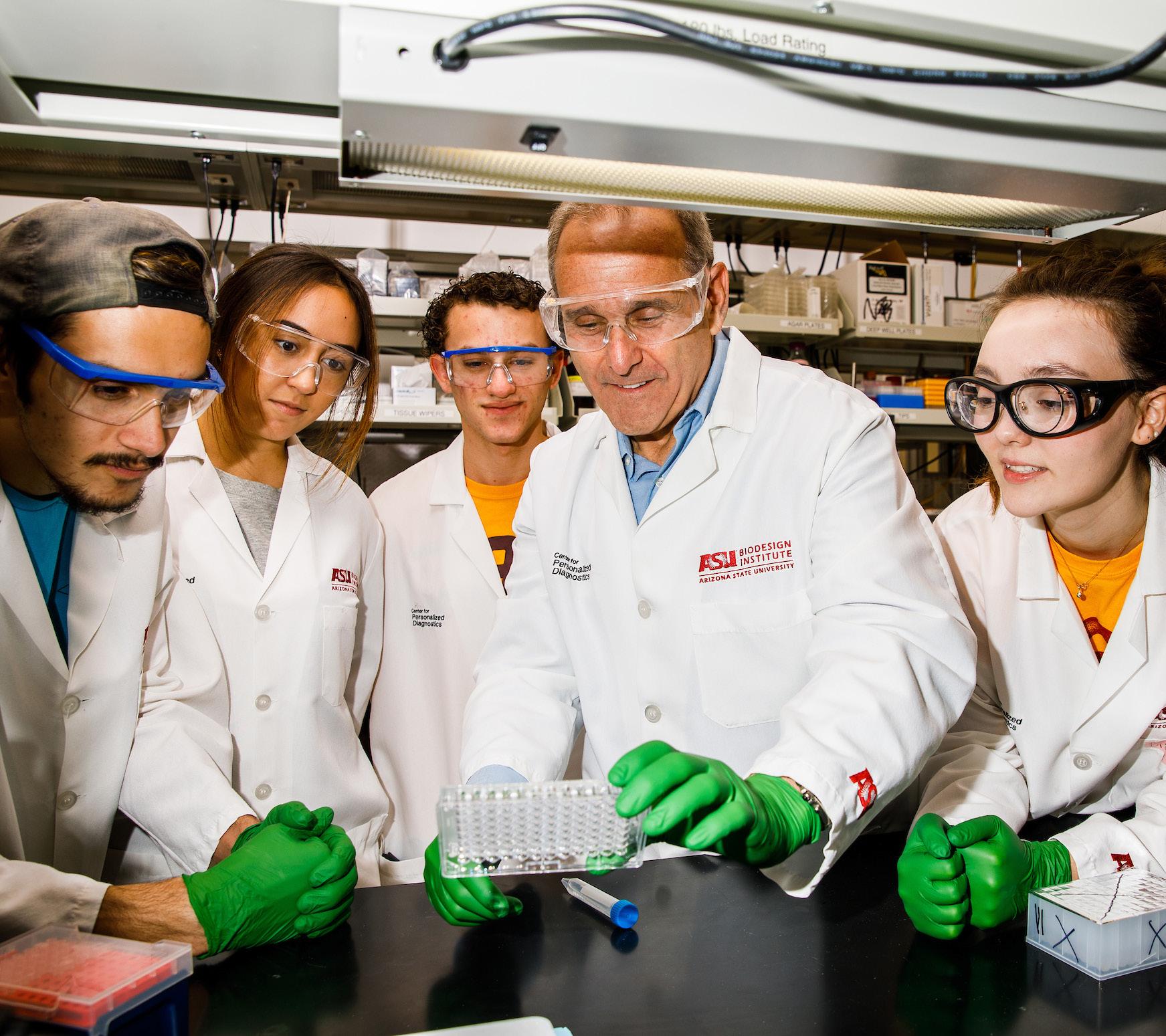
5 minute read
03. Arming Arizona with powerful data
Massive amounts of data — 2.5 quintillion bytes to be exact — are produced by robust information-gathering technologies each day. ASU researchers mine this data to detect patterns it reveals, including information about the coronavirus and its rapid spread. They have developed models to track and predict key information, from the health impact of lifting social distancing measures to job losses in the state. And they have launched an online clearinghouse for computer models to collaborate with scientists around the world.

Connecting scientists around the globe to model the pandemic
Thousands of scientists worldwide have been working around the clock to develop computer models to better understand COVID-19 and its rapid spread. To fast track research and discovery, ASU launched the Network for Computational Modeling in Social and Ecological Sciences (CoMSES Net), an international clearinghouse for computer models where scientists can harness the power of collaboration at a critical time. CoMSES Net provides a digital platform for scientists to scrutinize and fine tune the assumptions and algorithms of models projecting the course of the pandemic in hopes of curbing its devastating spread.
The surprising link between coronavirus and climate

ASU’s Global Futures Laboratory, in partnership with Foreign Policy, convened a panel of leading global thinkers to discuss the surprising but powerful links among the coronavirus, climate change and inclusive governance. Speakers at the Global Lessons for a More Resilient Future virtual dialogue presented a diverse range of perspectives and insights. One scientist warned that COVID-19 is not a black swan event, but a “fire drill” for climate change, demanding action to keep the planet habitable.
Revealing how to avoid a worst-case scenario
Social distancing curbed the pandemic, but plunged the nation into recession. As a result, states began reopening their economies in May. But what would be the toll on human life? The answer came in a collaborative research study — from ASU, the University of Florida Gainesville, the University of New South Wales and Harvard Medical School — that showed early termination of strict social distancing measures could trigger a devastating second wave of COVID-19. The simulations accurately predicted that terminating strict social distancing by the end of April would result in a significant rebound of COVID-19 as early as July.
Another ASU research study, published in the Journal of Infectious Disease Modeling, revealed that if most people consistently wore masks in public (even homemade face coverings), the result would be a significant reduction in community transmissions of COVID-19 and decrease in peak hospitalizations and deaths. The research offers insight into how to reduce the spread of the virus while still functioning as a society.

Enahoro Iboi is one of the lead authors of the research study on social distancing and a graduate student in the School of Mathematical and Statistical Sciences.
Tracking the coronavirus in an unexpected place
As the elusive coronavirus slipped through communities undetected before triggering a dangerous outbreak, a clue to its whereabouts could be found in the least expected place — wastewater. ASU Biodesign researchers have long studied wastewater to track contaminants and health threats in various communities, an approach called wastewater-based epidemiology. Phoenix, Tempe, Gilbert, Peoria and Guadalupe use this approach to track the coronavirus in wastewater and detect potential hotspots. The information allows communities to target resources — such as masks or information campaigns — where they are needed most.
Joining the race for a vaccine

To stop the deadly coronavirus in its tracks, ASU Biodesign Institute researchers began working around the clock in the race for a vaccine just a week after the first U.S. case of the new coronavirus was confirmed in Washington state. There are currently four in various stages of development:
• Vaccinia virus: A SARS-CoV-2 vaccine using recombinant attenuated poxvirus vectors.
• Human embryonic kidney cells: Mammalian-cell-produced virus-like particles could elicit a robust systemic and mucosal immune response.
• Plants: Plant-produced chimeric Hepatitis B core-based virus-like particles and recombinant immune complexes (RIC) vaccines for SARS-CoV-2.
• Myxoma virus: Vaccine based on myxoma virus expressing SARS-CoV-2 antigens.

Brenda Hogue, an ASU Biodesign Institute virologist, is considered one of the world’s leading experts in understanding the structure and behavior of coronavirus proteins.
Delivering data straight to your screen
The Biodesign Institute’s Clinical Testing Lab interactive dashboard keeps the community up-to-date on COVID-19 data. This dashboard informs public officials of hotspots, keeps the public informed about the virus’ trajectory in Arizona and is a key for state COVID-19 stats.

Preview of the ASU Biodesign Clinical Testing Lab dashboard
Google searches, media outlets and social community pages are top traffic sources pointing users to the site. Outbound clicks are up 660% — directing traffic to Arizona Department of Health Services and the Point and Click portal to sign up for statewide testing.
Building community resilience through interactive tools
From a dashboard that tracks key metrics on Arizona job loss and other economic indicators to a robust hospital resources mapping tool, ASU’s Knowledge Exchange for Resilience site provides facts at leaders’ fingertips. The site also offers an ondemand webinar on adaptive leadership, among other features.
New resource hub on COVID-19 tests worldwide

ASU’s Decision Theater teamed up with the ASU College of Health Solutions and the World Economic Forum to launch COVID-19 Testing Commons, a one-stop, reliable source for comprehensive information about COVID-19 tests worldwide on the COVID-19 Diagnostic Commons site. The hub makes it possible for users to search all tests in the market and pipeline by multiple parameters, including test type, technology, regulatory status, country of origin and more.
— Dr. Jonathan “Jono” D. Quick, managing director for pandemic response, preparedness and prevention at The Rockefeller Foundation and author of “The End of Epidemics”
Launching computational tools to arm scientists with answers
In the middle of the chaos and confusion a pandemic brings, information technology systems that maintain the flow of information are vital. ASU Knowledge Enterprise’s Research Technology Office rose to the occasion, supporting web, information technology and security demands for the many emerging COVID-19 projects universitywide. RTO rapidly deployed a number of websites, tools and applications to support university efforts, including the clinical system for participants to schedule COVID-19 testing and receive results. In addition, RTO coordinated a tri-university effort to leverage research supercomputing capabilities to perform complex protein modeling of COVID-19. Dozens of research faculty are now using the new RTO-created Arizona Secure Research Environment (ASRE) to model and study epidemiological trends throughout Arizona and the world.









